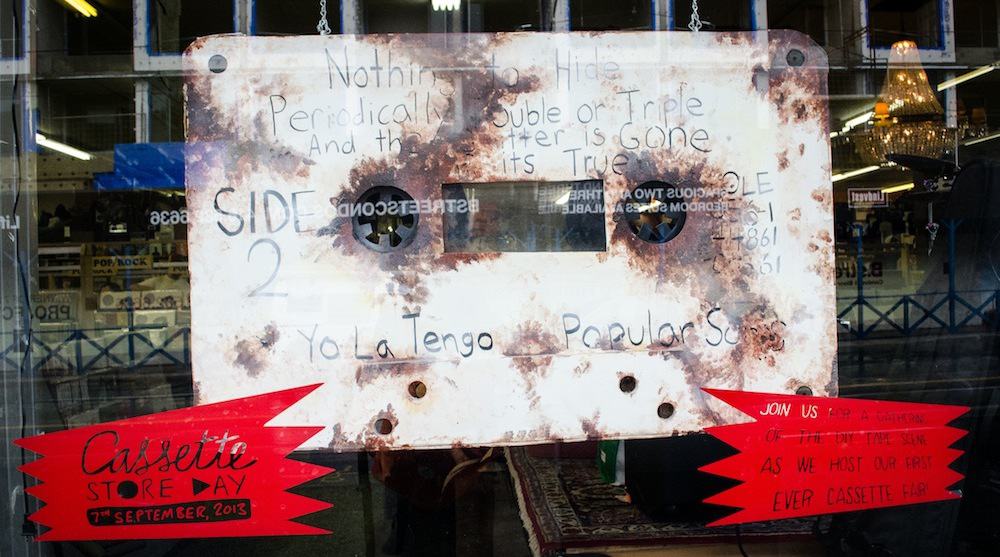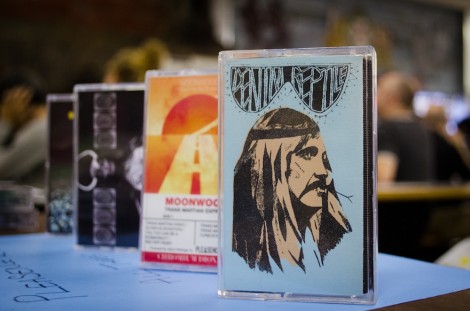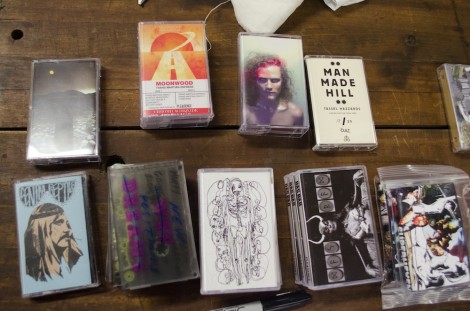The cassette tape forever changed how we appreciate, buy, and listen to music. Many of the things we take for granted today — such as being able to blast a mixtape while walking to class, hearing music from far-away countries, or being able to afford an album for 10 dollars — are a result of the cassette.
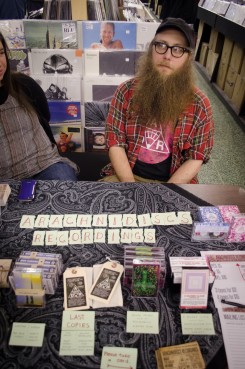 With the subsequent arrival of CDs and digital files, the average music library is no longer composed of cassettes. Many people see them as relics of the past: fun for nostalgic reminders of childhood car trips, but not for everyday musical consumption. This view is even held by Sony, the company that allowed us to bring tapes out into the street, with its announcement of plans to discontinue producing the Walkman in 2010.
With the subsequent arrival of CDs and digital files, the average music library is no longer composed of cassettes. Many people see them as relics of the past: fun for nostalgic reminders of childhood car trips, but not for everyday musical consumption. This view is even held by Sony, the company that allowed us to bring tapes out into the street, with its announcement of plans to discontinue producing the Walkman in 2010.
Yet there is a cassette tape resurgence brewing. Labels dedicated to tape releases lovingly churn them out worldwide, so much so that a trio of British label owners — Matt Flag, Jen Long, and Steve Rose — decided to create a day to honour the sometimes overlooked medium. Cassette Store Day, much like the Record Store Day by which it is inspired, involves 75 stores all over the world hosting events including tape fairs, exclusive releases, and in-store performances.
On September 7, Sonic Boom celebrated Toronto’s first annual Cassette Store Day at its Annex location. Twenty-one different labels set up shop behind rows of tables in the front corner of the store, displaying colourful wares and plenty of enthusiasm. The event also featured performances from Doc Dunn, Jesse Laderoute, and Black Walls, all of whom provided an atmosphere for attentive listening or tape browsing.
The most apparent thing from looking at the tables was the wide variety of music being released on tape today. Each label is rather eclectic, including “everything from sludgy gross metal to straight-up pop music” from Buzz Records, while Pleasance Records releases “some pretty weirdo noise music [alongside] disco pop stuff.”
One of the main advantages of the cassette medium is the abundance of styles it can afford. According to Pleasence Records’ Deirdre O’Sullivan, “they’re inexpensive, so it makes the music accessible for pretty much anybody.” A CD can cost you $10-15, and a record even more, but a tape can be added to your collection for a few dollars. The smaller degree of financial commitment in turn encourages musical experimentation and exploration.
Of course, a digital file is even more inexpensive to produce, but many feel that something is lost when music is consumed directly through a computer. “[Cassettes are] a warm medium, it feels like something, whereas a digital track is just a piece of air,” said Denholm Whale of Buzz Records. “It’s a nice piece of memorabilia.”
O’Sullivan agreed about the merits of physical media: “For me, it’s all about the archival, actual hard copy. And, you know the art. The thing about a CD is there’s something about it, because it sounds digital, that’s too similar to the mp3. Whereas with the tape, even the whole ritual of the cassette deck, is just a little more exciting.”
Plus they just plain sound good, an opinion echoed by every label surveyed. “They sound great. I like the warmth of the cassette,” said Healing Power Records’ Wolfgang Nessel. The groups of people who happily purchased pocketfuls of tapes certainly agree.
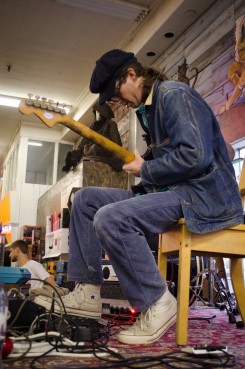 The event was a definite success in the eyes of its record store host. “It went way above and beyond our expectations, and it was incredible to see so many cassette releases in one place,” said Jon Maki, a buyer for Sonic Boom. “Toronto has a thriving diy music community and this event was a testament to that.”
The event was a definite success in the eyes of its record store host. “It went way above and beyond our expectations, and it was incredible to see so many cassette releases in one place,” said Jon Maki, a buyer for Sonic Boom. “Toronto has a thriving diy music community and this event was a testament to that.”
If you missed the event, you can get tapes directly from all of the labels present or in person at Sonic Boom and other Toronto record stores. And there’s always next year, Sonic Boom says they “are definitely thinking about doing it again.”

